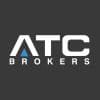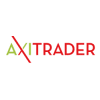
It’s a known fact all financial institutions need to be licensed or regulated to strict standards to prevent fly-by-night operators and ensuring clients can deposit funds with the utmost trust. In forex, these attributes are no exception.
In the pursuit of any new broker, licensing is often the first consideration for any client since it provides a level of security and faith. Forex is a decentralized market that has no central authority overseeing it.
The only alternative close to providing some form of supervision is for individual territories or countries to regulate the brands providing forex services. Nowadays, there are so many nuances to this challenge going beyond just ensuring a broker is regulated.
While, of course, that is the foundation of it all and the first step within the broader broker licensing, there are other points traders should take into consideration, which this article will cover.
The tier of a forex regulator
There is somewhat of a perception certain regulators are so-called tier 1 compared to others.
Traders should pay careful attention to international brokers with regulations strictly from offshore countries such as Mauritius, Cayman Islands, Bermuda, Belize, British Virgin Islands, the Bahamas, etc. since there is less trust given for these regions.
Regulators from these nations do not have as stringent standards to meet compared to their more dependable counterparts from the rest of the world. Another issue is some brokers from such places are technically unregulated, further adding to the negative perception.
Even if a trader does not come from these states, they should do more research regarding the regulation. A better outcome would be a broker with licenses from multiple locations, a mixture of those from offshore and European/American/Australian districts.
The list below is what the majority consider top-tier or tier-1 regulators that foster the highest level of confidence:
- CySEC (Cyprus Securities and Exchange Commission) – Cyprus
- IIROC (Investment Industry Regulatory Organization of Canada) – Canada
- FCA (Financial Conduct Authority) – United Kingdom
- FINMA (Swiss Financial Market Supervisory Authority) – Switzerland
- ASIC (Australian Securities and Investment Commission) – Australia
- BaFin (Federal Financial Supervisory Authority) – Germany
- FINMA (Swiss Financial Markets Supervisory Agency) – Switzerland
- JFSA (Financial Services Agency) – Japan
- CFTC (Commodities Futures Trading Commission) or SEC (Securities and Exchange Commission) – United States
The different terminology to describe regulation from brokers
The various statuses brokers can hold are the more nuanced aspect when considering regulation overall. From time to time, it’s beneficial for traders to be aware if there are regulatory changes (such as suspended or revoked licenses) to a broker they’re using.
Regulatory bodies will provide news about any legal events that could put a broker’s status in some jeopardy. Furthermore, brokers use specific recurring terms, which may sound similar on the surface but imply different things.
The only words that truly matter are ‘regulated,’ ‘authorized,’ or ‘licensed’ instead of ‘registered’ or ‘in process.’
Fortunately, traders can perform a simple online search to verify whether a broker is currently regulated and maintains this status with a specific regulator. Although nearly all brokers will provide who they’re overseen by, it is imperative to double-check formally.
- ‘Licensed,’ ‘regulated,’ or ‘authorized.’ A licensed or regulated broker means the company has fully obtained an operating license from a designated regulatory body after going through the lengthy procedures.
Therefore, it is legally authorized to function as a brokerage within the jurisdictions covered by the regulating authority. Traders should be aware that, unless it is prohibited in their own country of residence, many clients trade with regulated brokers that don’t have any regulation in their respective countries.
Therefore, if there are legal issues, they would be resolved in the country of the regulator’s origin rather than that of the user’s.
- ‘Registered.’ One should be careful of this language. Being registered in any country is by no means an indication of a regulated broker in that or any other particular region.
A registered entity typically implies the broker has some form of company registration. In other cases, they may even have offices in that specific location. However, no regulator may legally authorize that broker to provide brokerage services to clients.
- ‘In process.’ Some brokers in the process of acquiring a license or extending one will claim the ‘in process’ status. Of all the terminology, this is the one that should raise some red flags.
Although a broker may indeed be in the process, in the meantime, they are still technically unregulated and can remain as such for an indefinite period. In the worst case, some may not adhere to any regulation at all and may use such wording to attract or assure clients falsely.
As with all of the previous language, it is usually not difficult to verify where a broker stands in terms of regulation.
Conclusion
The main point of this article is to bring awareness to what traders should look for regarding regulation, mainly the most trusted regulators, why it’s necessary to periodically view a broker’s regulation status through observing any news and to be aware of the common terminology used.
Ultimately, regulation is not a foolproof method to completely rid of bad actors and does not guarantee one will not have a bad experience even with the most reputable of brands.
However, what it does is lessen the risk of dealing with entities likely to act unethically against their clients. When it comes to the handling of money, it is all about staying on the safe side.








Leave a Reply